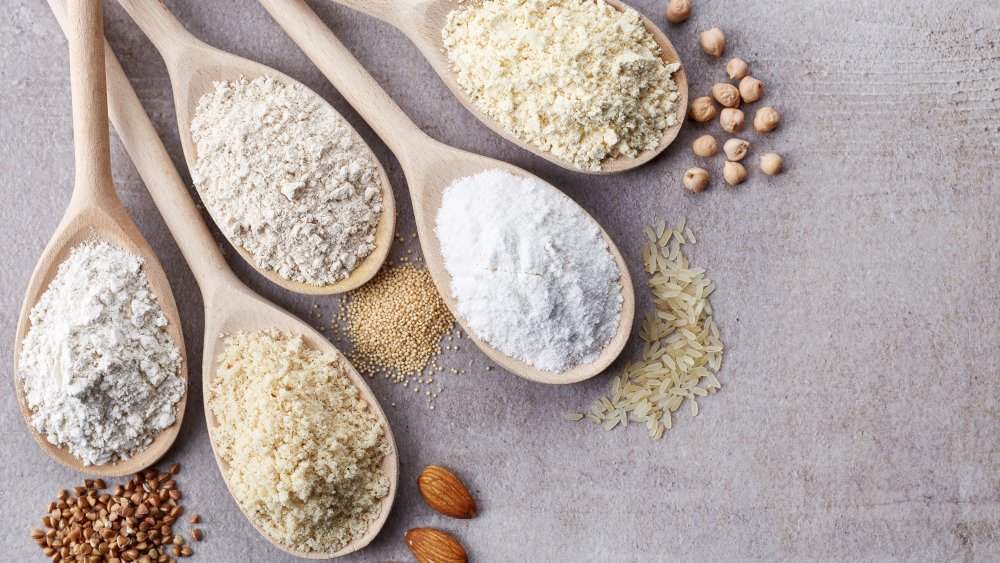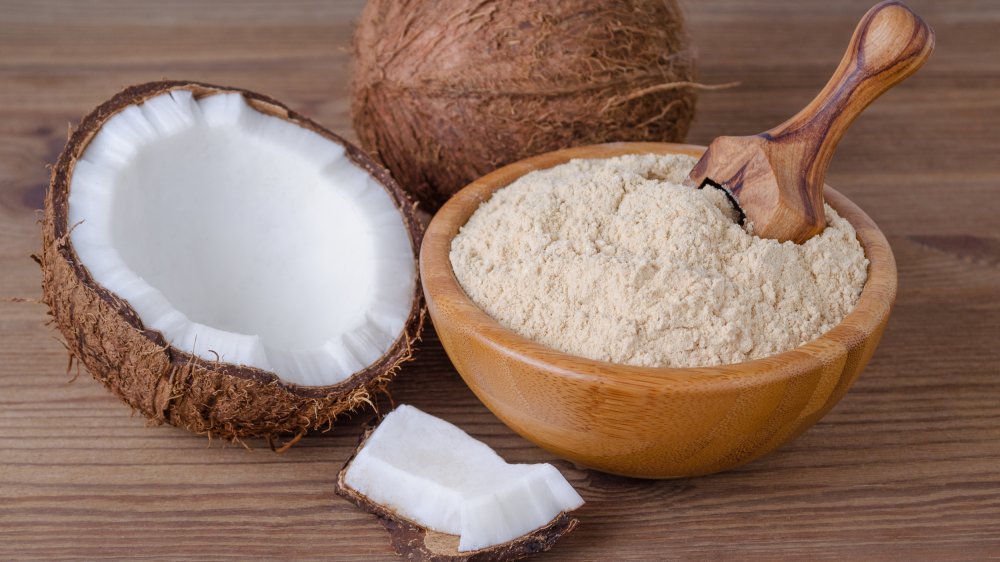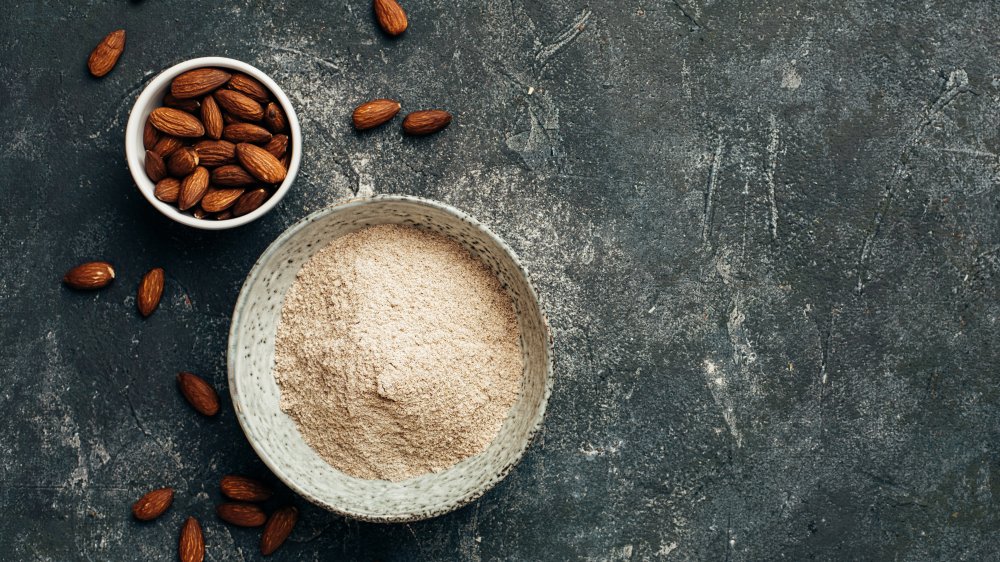What You Need To Know About Low-Carb Flour
Thanks to a bit of creativity on the part of food scientists, going low-carb or giving up carbs altogether doesn't have to mean doing away with baked goods, including cakes, quick breads, cookies, and pie. But being a longtime baker is no guarantee that you'll be a success at creating low-carb baked treats since alternative flours don't always behave like their wheat-y counterparts.
Tasty says that because low-carb flours are high in fat, they are best used when they are at room temperature, so it will help if you set them out about half an hour before baking. They need to be stored carefully and used quickly because of that higher fat content, and because these flours are often gluten-free, they're likely to need what might look like a copious amount of baking powder or soda that helps keep low-carb products light. Low-carb flour will also deliver batters that are also stickier than their wheat counterparts.
Keto flours can be difficult to work with
Keto flours are also idiosyncratic and will exhibit qualities that baking only manages to enhance. For instance, coconut flour might be popular, but it is a dense and highly absorbent flour that can give you a batter that is either too crumbly if there isn't enough eggs or liquid, or too soggy if you've put in too much.
Chickpea flour has a beany flavor, making it better suited in savory recipes. Walnut flour, which is made out of walnuts which have been pressed for their oil, also has a heavy flavor, so it has a distinctive flavor which could overpower your dessert (unless your intent was to create a walnut dessert to begin with) (via The Spruce Eats). Then there is flax meal — a heavy flour that can give you a gummy-textured dough, making it an undesirable flour for baking cakes and cookies. Instead, you'll want to stick to golden flax meal for a better texture (via Fit to Serve).
Keto bakers can rely on a few more stable flours
Having said that, there are a few alternative flours that experienced keto bakers use as reliable, go-to substitutes for all-purpose flour. Almond flour (not to be confused with almond meal) is made with blanched almonds and is the foundation on which French macarons, as well as a number of cookies, light cakes, and quick breads, are built on (via The Kitchn). Because almond flour is also milled from nuts, it is high in polyunsaturated fats and is high in magnesium and vitamin E.
Soy flour, which is high in protein, can also be used as a reliable substitute for all-purpose flour, although the substitution ratio is not 1:1 — instead, use 3/4 cup for every 1 cup your recipe calls for. Hazelnut flour, if you can find it, can also act as a substitute for almond flour and is high in unsaturated fat, although Fit to Serve also warns that it can be a pricey low-carb flour because it is not as commonly used.


